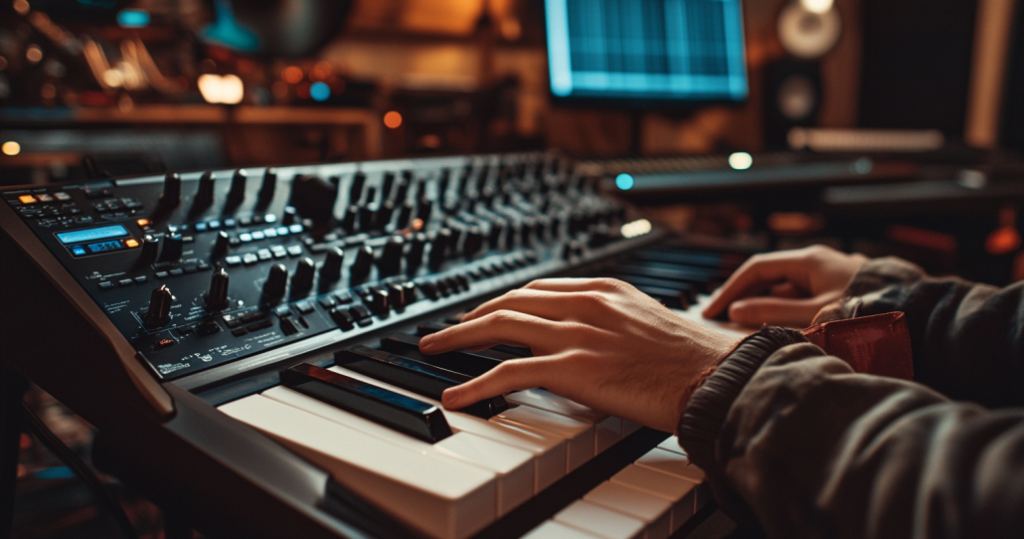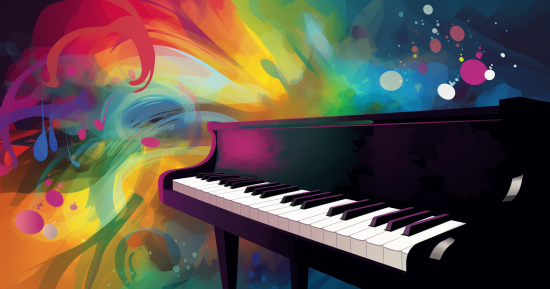Could music be considered a form of art? This query may have crossed your mind while listening to your favorite songs or attending a live concert. Serving as a conduit for human innovation and sentiment, music has retained its significance as an essential part of human culture over the ages. Similar to painting, sculpture, or other visual arts, music surpasses language barriers and unites individuals in a collective emotional experience.
Music a Form of Art
Delving into the world of music, you’ll find that it encompasses many styles, forms, and compositions, allowing for boundless creativity. This versatility makes music such a fascinating and enduring art form. Whether it is the rhythmic patterns, melodies, or harmonies, music’s unique elements contribute to its classification as art.
By exploring various genres and traditions, you can better appreciate music as a creative expression. So, next time you listen to your favorite songs or attend a concert, take a moment to appreciate the artistry behind the notes and chords that resonate with your emotions.
Defining Art
Characteristics of Art
Art transcends mere visuals, embodying human expression and emotion. It’s not just what you see or hear but what you feel that defines a piece of art, whether it’s the stirring depth of a song or the evocative imagery of a painting.
Varieties of Art Forms
Music, an intangible art form, resonates with us emotionally, transcending the physical realm. Its diverse genres and styles reflect human creativity, akin to how religion and philosophy express cultural values. Music embodies the essence of art, capturing the depth of the human spirit.
Music as an Art Form

Musical Composition and Structure
When it comes to music as an art form, one crucial aspect is musical composition and structure. How a piece of music is organized into melodies, harmonies, and rhythms often tells a story or conveys emotions. Like visual arts, creating music involves selecting various components and arranging them to create a meaningful and appealing work of art for your ears.
Emotional Expression in Music
Music can stir emotions and evoke joy, sadness, and nostalgia. As you listen to a piece of music, your emotions may be stirred, and this connection between music and emotions is a key aspect of why music is considered an art form. It’s an incredibly mesmerizing listening experience that can touch your heart and soul.
Examples of emotional expression in music:
- Joyful: Upbeat tempos and significant keys
- Melancholic: Slow tempos and minor keys
- Dramatic: Rapid shifts in dynamics and tempo
Cultural Impact of Music
Another reason why music is an art form is its significant cultural impact throughout history and across various societies. Each culture has unique music styles, instruments, and forms representing its history, traditions, and beliefs. Just like paintings or sculptures, music can be a powerful tool in preserving cultural heritage and expressing the identity of a community or a nation.
Analyzing Music

Musical Theory and Critique
Like any other art form, music has its language: melody, harmony, rhythm, and structure. By studying the history of music and various styles, you can gain a deeper appreciation for its intricacies and artistic value.
For example, classical music adheres to established conventions, such as the sonata-allegro form, theme, and variations. Composers can experiment with different melodies, harmonies, and rhythms within these structures, showcasing their creative abilities.
In addition, here are some key elements in music theory to consider:
- Scales: Different patterns of notes, such as major, minor, and pentatonic scales
- Key Signatures: Indicate the main scale used in a piece, for instance, C major or A minor
- Chords: A group of two or more notes played simultaneously, creating the harmony
- Dynamics: Volume levels in a piece, like piano (soft) or forte (loud)
Remember these elements as you listen and analyze music, enhancing your understanding of its artistic nature.
Music Appreciation
To further appreciate music as an art form, engaging with the symbolic value and emotions it evokes is important. Just like paintings or sculptures, music has the power to portray narratives and elicit an emotional response.
Here are a few steps to help you grow your music appreciation:
- Listen actively: Pay attention to the different elements of a piece, such as melody, harmony, and dynamics
- Explore different genres: Expand your horizons by listening to various styles, from jazz to heavy metal
- Attend live performances: Experience the energy of a live concert or the intimacy of a chamber music recital
- Read about music: Learn more about the background of the pieces and composers you enjoy
Following these steps will deepen your appreciation for music and its role as an art form. Like any other art, music expresses creativity and emotion that transcends language barriers and connects people across cultures.
Music in Modern Society

Influence of Technology on Music
In today’s world, technology has played a significant role in shaping the way we create and consume music. With the rise of digital platforms, you can easily access various music genres, effectively expanding your musical taste. The introduction of music production software has facilitated artists’ experimentation with sounds, leading to the birth of new genres and styles.
As a music enthusiast, you can indulge in the growing culture of online music streaming and sharing platforms (Spotify, Apple Music, Amazon Music), which serve as entertainment and offer a way to connect with others who share similar tastes. Remember, music is undeniably a form of art transcending physical forms; it speaks to our emotions and experiences.
Music as Social Commentary
Throughout history, music has acted as a powerful medium for expressing social and political commentary, bringing to light crucial issues and inspiring change. Artists continually use their music to convey vital messages through lyrics and melodies, making you, the listener, think and reflect on societal issues.
A few genres that hold a strong connection to social commentary include:
- Hip-hop: emerged as a voice for marginalized communities, addressing themes such as discrimination, violence, and poverty.
- Folk: often narrates stories of everyday people, addressing topics like labor rights, war, and environmental concerns.
- Punk rock: associates with anti-establishment, challenging the status quo and promoting individualism.
As you can see, music holds a unique place in modern society, reflecting cultural, technological, and social changes. So, next time you listen to your favorite song, take a moment to appreciate the power and beauty of music as an art form and its ability to express, connect, and inspire in ways that few other mediums can.
FAQ – Music a Form of Art
How is music considered a form of art?
Music is considered art because it involves creative expression through sound, rhythm, and melody. Like other art forms, it conveys emotions, tells stories, and can provoke thought, making it a powerful medium for artistic communication.
What are some different genres of music that showcase its artistic diversity?
Music showcases its artistic diversity through various genres, including classical, jazz, rock, pop, hip-hop, and electronic. Each genre has unique characteristics, techniques, and cultural influences, allowing for a wide range of artistic expression and creativity.
How can music enhance other art forms?
Music can enhance other art forms by setting the mood or atmosphere in visual arts, dance, theater, and film. For example, a film’s score can evoke emotions and heighten the viewer’s experience, while live music performances can complement dance routines, creating a more immersive artistic experience.






